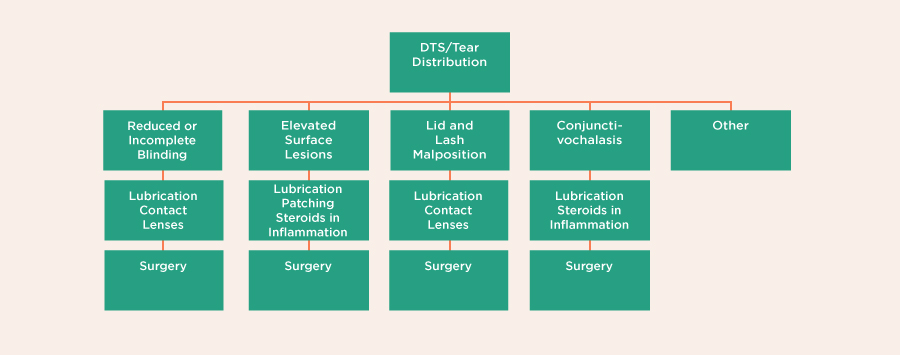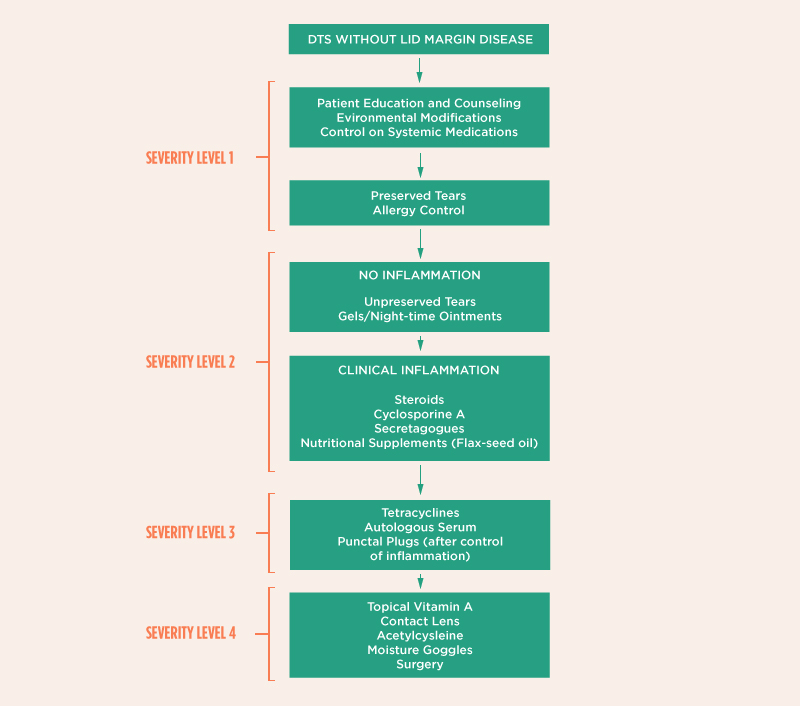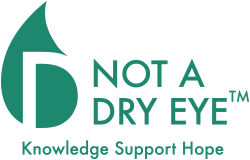Using a modified, 2-round, Delphi approach, 17 specialists from around the world collaborated to develop treatment recommendation for Dysfunctional Tear Syndrome (DTS), the term they proposed to replace Dry Eye Syndrome. The paper was published in 2006 in the journal Cornea.
The authors discovered that panelists “relied on symptoms and signs (not tests) for selection of treatment strategies.”
The Delphi Panel recommended several approaches to selecting treatments depending on co-morbidities, disease severity and response to previous treatment.
The first table describes first and second-line treatment strategies for DTS with abnormal tear distribution.
The next two tables describe treatment approaches for increasing severity of DTS, without lid margins disease, and with, and without, tear distribution problems.
Algorithm on treatment recommendations for DTS with abnormal tear distribution.

Algorithm on treatment recommendations for DTS without lid margin disease according to severity.

Treatment Recommendations for DTS (Dysfunctional Tear Syndrome aka Dry Eye Syndrome) on the Basis of Level of Severity for Patients without lid margin disease or tear distribution problems.
| DTS Severity | Treatment Recommendations |
|---|---|
| Level 1 | No treatment |
| Preserved tears | |
| Water intake | |
| Use of hypoallergenic products | |
| Environmental management | |
| Psychological support | |
| Allergy drops | |
| Avoidance of drugs contributing to dry eye | |
| Level 2 | Unpreserved tears |
| Secretagogues | |
| Gels | |
| Topical steroids | |
| Ointments | |
| Topical cyclosporine A | |
| Nutritional support (flaxseed/fatty acids) | |
| Level 3 | Tetracyclines |
| Punctal plugs | |
| Level 4 | Surgery |
| Punctal cautery | |
| Systemic anti-inflammatory | |
| Acetylcysteine therapy | |
| Contact lenses | |
| Oral cyclosporine | |
| Moisture goggles |
Reference
Dysfunctional tear syndrome: a Delphi approach to treatment recommendations
Behrens A, et al.
Cornea
2006 Sep;25(8):900-7.
View the full report

